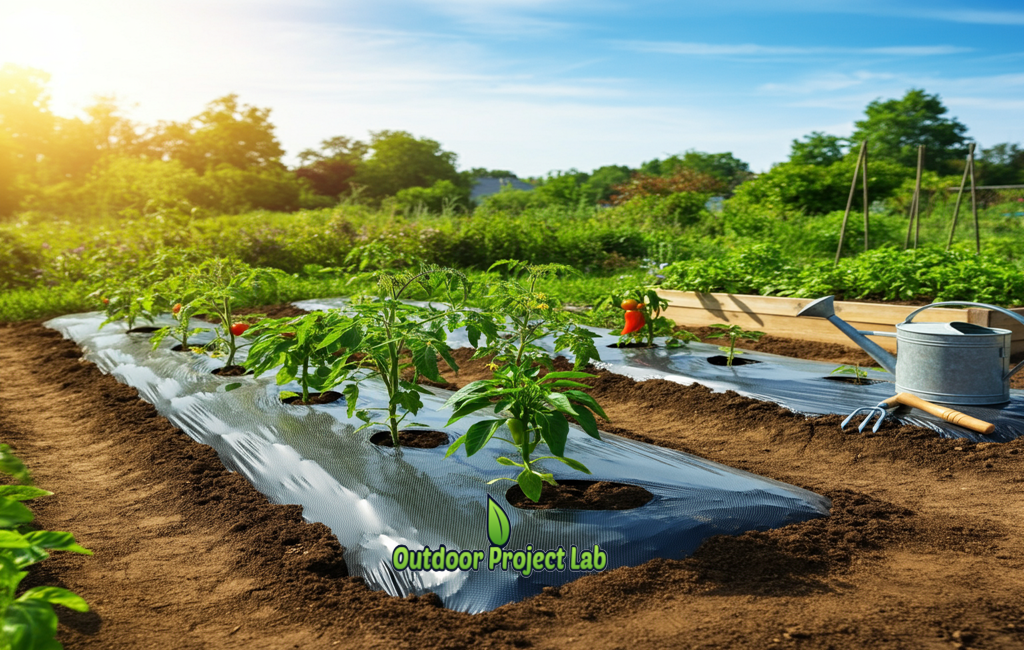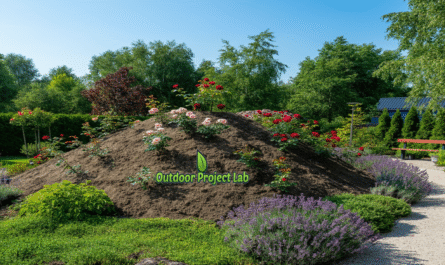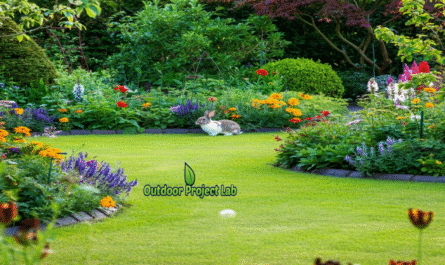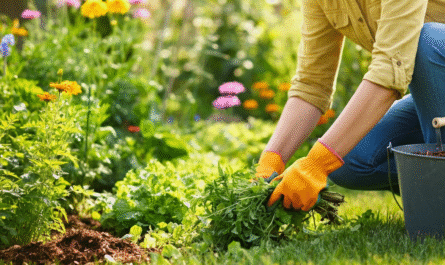Black plastic is a tool many gardeners use to help their plants grow. This black sheeting for gardens covers the soil to stop weeds and keep the ground warm. People use it to get healthier plants and bigger harvests, especially in a vegetable garden. It is a popular type of garden ground cover.
What Is Black Plastic for Gardens?
Black plastic for gardens is a thin, dark sheet that you lay over your garden soil. It is a type of plastic mulch. Unlike natural mulches like wood chips or straw, this plastic is made to block all sunlight from reaching the soil.
This cover creates a barrier that helps manage the garden environment. Gardeners often use it in neat rows, cutting holes in the plastic only where they want their plants to grow.
Top Benefits of Using Black Plastic in the Garden
Using black plastic offers several advantages that can make gardening easier and more productive.
Excellent Garden Weed Control
One of the biggest benefits of black plastic is garden weed control. Since the plastic blocks sunlight, weed seeds in the soil cannot sprout and grow. This means you spend much less time pulling weeds from your garden.
Warmer Soil Temperatures
The black color of the plastic absorbs heat from the sun. This action warms the soil underneath. Soil warming is a great benefit, especially in cooler climates. Warmer soil helps seeds sprout faster and encourages strong root growth early in the season.
Better Moisture Retention
Black plastic also helps with moisture retention. It slows down how quickly water evaporates from the soil. Your garden soil stays damp for longer, so you do not have to water your plants as often. This is very helpful during dry or hot weather.
Earlier Harvests in Vegetable Gardens
Because the soil gets warmer sooner, you can often plant your vegetable garden earlier in the spring. This head start can lead to an earlier harvest. You can enjoy fresh vegetables from your garden before your neighbors do.Learning from experts can improve your gardening skills. For more detailed information on using plastic mulches, the University of Minnesota Extension offers an excellent guide on using plastic mulches and row covers.
Downsides to Consider
While there are many benefits of black plastic, there are also a few downsides. It is good to know about them before you decide to use it.
One issue is that the plastic can get very hot in the summer sun. This can sometimes cause heat damage to the roots of sensitive plants. Also, black plastic is not a permanent solution and creates plastic waste, which is not great for eco-friendly gardening. Finally, it is not the right choice for all types of plants, especially those that prefer cooler soil.
Black Plastic vs. Other Garden Ground Covers
How does black plastic compare to other options? This table shows some common choices for covering garden soil.
|
Material |
Weed Control |
Reusable |
Eco-Friendly |
Cost |
Best For |
|---|---|---|---|---|---|
|
Black Plastic |
Excellent |
Yes |
No |
Low |
Vegetables, Raised Beds |
|
Landscape Fabric |
Good |
Yes |
Medium |
Medium |
Flower Beds |
|
Straw Mulch |
Medium |
No |
Yes |
Low |
Organic Gardens |
|
Wood Chips |
Good |
Yes |
Yes |
High |
Perennials, Trees |
Tips for Using Black Plastic in the Garden
To get the most out of black plastic, you need to use it correctly.
First, prepare your garden bed by removing all weeds and rocks. Then, lay the black plastic sheeting down smoothly over the soil. Secure the edges with soil, rocks, or garden staples to keep it from blowing away. When you are ready to plant, simply cut an ‘X’ in the plastic and place your plant in the soil underneath.
It is best to use black plastic in the spring to warm the soil for early planting. It works especially well for heat-loving plants like tomatoes, peppers, and melons. You can use it in traditional gardens or in raised beds. Managing pests is also part of gardening; understanding details like how high can rabbits jump a garden fence can protect your hard work.
Eco-Friendly Alternatives to Plastic Mulch
If you are looking for a more eco-friendly gardening option, there are other choices. A biodegradable alternative like straw, grass clippings, or shredded leaves can also be used as mulch. These natural materials break down over time, adding helpful nutrients to the soil.
While they may not offer the same level of weed control or soil warming, they are better for the environment. For other home and garden projects, like building a French drain in clay soil, finding the right materials is key. Our team at Outdoor Project Lab provides guides for many outdoor tasks.




